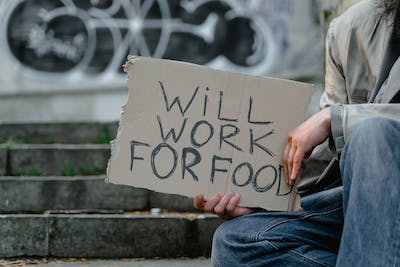George Orwell’s novel, 1984, curiously discusses how the authoritarian regime successfully controls and rules the whole population. We are told that the regime only provides as little food to the citizens as it is required to keep them alive, dependent and working. If the population somehow got food more than enough, it would become independent, and an independent population would have the time to contemplate its circumstances, and it would ultimately start getting education, for the colossal obstacle in the way of getting education, bad economic situation, would have been no more. The educated population would no longer bow down to an authoritarian regime. So the population should not be provided food more than its need. In other words, bad economic situation is a barrier.
Applying the same case to Pakistan’s 76-year history

Putting the same scenario to test to 76 years of Pakistan’s history, it evidently passes the test, and the core reason behind Pakistan’s educational woes becomes apparent. Since the inception of Pakistan’s political and economic history, the citizens have been ruled in an authoritative manner, directly or indirectly. Intentionally or unintentionally, economic situation has been deteriorating for last four decades, making the people more and more dependent and the inherent love for education more and more alien. The end result is a country where there is no education, bad education and brain drain.
After teaching for more than a year at college level in HED, Punjab, and in private sector before, I can easily agree with the assessment of Mr. Orwell. The faces of my students at college level in govt. sector look disinterested in about whatever I am lecturing. My lectures seem to be going over their heads. They are less interested in finding out what type of woman Norma is or what is a sonnet and more interested in how and where they can find a job which can endow them with a better sum of money.

While teaching the chapter ‘Why boys fail in College’ by Herbert Hawks in 2nd year book, which gives its readers the main psychological and physical reasons behind the failure of students, I was struck by an idea that these might be behind their poor performance. Reading the chapter made me enthusiastic about the matter and I started following up the anomaly more seriously. Over a period of time, I questioned the students about their hobbies, their fathers’ jobs, their houses and what they love to do in their leisure time. Surprisingly, most of them were busy in doing part-time jobs at call centers to make their family’s financial situation better. They were doing these jobs from evening till morning. Why they were coming late to the college or their attendance was short was not unusual then. When asked about why they were doing jobs, the answer was simple and convincing, “We have to do it.” Their domestic issues and jobs also revealed their habitual frustration.
Once the issues become known, it was hard to question their performance and to request them to let go their job for the sake of their education. Just as Mr. Hawks points out in the chapter that instead of banishing students for their poor performance, the underlying issues must be dealt with. In my students’ case, there is one and only: poverty. They belong to the lower class of the society, and being poor is an obstacle in their way to getting education.
The authoritarianism has followed the secret formula of giving only the required amount of food to the needy and has kept the number of destitute ones intact or increasing even after seven decades of the independence. By placing the obstacle of poverty in their way to becoming educated and independent, the elite have been ruling till this very day.



You must be logged in to post a comment.